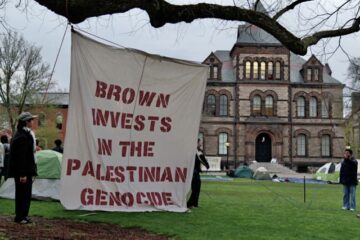New York City, NY [CapitalWirePR] April 17, 2013–– As immigration reform gains momentum in Congress, Latino and Jewish leaders across the country have jointly declared their commitment to engaging in this cause for justice and equality. They also will expand on their efforts to other areas of common concern, including foreign policy, philanthropy and education.
The Statement of Latino-Jewish Joint Purpose was one of the outcomes of a recent national two-day National Conversation on the State of Latino-Jewish Relations. “We consider ourselves partners and allies with whom we share common historical experiences, knowledge, challenges and successes,” says the Statement. The National Conversation, organized by AJC’s Latino and Latin American Institute, brought together 70 Jewish and Latino leaders from across the country.
“Today, there is a sense of urgency in both communities for a stronger and more effective Latino-Jewish collaboration to advance joint visions and goals at home and abroad,” said Dina Siegel Vann, director of AJC’s Latino and Latin American Institute.
Since Jews and Latinos are largely immigrant communities, and have faced similar challenges of integration, they are natural allies on the immigration reform issue.
“Together we are committed to federal comprehensive reform of the current dysfunctional immigration system,” says the Statement of Latino-Jewish Joint Purpose. “We call for pragmatic common sense solutions to fix our legal immigration system so as to meet the economic and national security needs of the U.S. in the 21st century, reflecting our shared American values of justice, equal opportunity, family unification and human dignity.”
The Statement addresses additional areas of concern, discussed in-depth during the Conversation, such as coalition dynamics, community development, philanthropy, and foreign policy and Homeland-Diaspora relations.
The Latino and Jewish leaders called on both communities to advocate together for “the commitment of the U.S. to the furtherance of critical bilateral relationships with the countries of Latin America and with Israel as strategic allies.”
On philanthropy, aware of differing trends in community investment, leaders agreed that closer Latino-Jewish collaboration can lead to increased institutional and private giving.
“We commit to share our experiences, knowledge, challenges and successes, so as to ensure that Latinos and Jews, and all Americans, can enjoy supportive communities and attain access to quality education, economic opportunity and political empowerment,” says the Statement.
Statement of Latino-Jewish Joint Purpose
In March 2013, a select group of Latino and Jewish leaders throughout the country convened in Washington, DC for a National Conversation on the State of Latino-Jewish Relations. The goal was to take proper stock of accomplishments and deficits and of challenges and opportunities in the process of building a new chapter in their collaborative relationship. The group focused on the meaning of being in a relationship and expanded interaction on issues such as philanthropy, immigration reform, foreign policy and homeland/diaspora relations.
Latinos and Jews have come a long way ever since our communities started interacting many decades ago. Both groups share a growing conviction that both pragmatic considerations and enlightened self-interest today provide the most compelling and urgent ground for expanded cooperation. We see the need for a stronger and more effective Latino-Jewish coalition to advance shared visions and goals at home and abroad.
This National Conversation comes on the heels of the inauguration of a new U.S. administration offering an unequaled opportunity to work together and help ensure that policies that will affect this country in the years to come are effectively addressed and implemented, for the benefit of our communities and for American society as a whole.
COMMONALITIES
We affirm the commonalities between the Jewish and Latino experiences. We are both primarily diaspora communities — peoples who have settled outside our ancestral and/or native homelands at different times and under different conditions, but with which we retain and have established a wide range and depth of organic ties. We have both endured prejudice and discrimination and have also contributed positively to the fabric of American society on all levels. We are diverse immigrant communities united by the shared values of freedom, justice, and equal rights. Recognizing joint historical, cultural and political connections, we believe in the potential of enhancing our collaboration at many levels. Our strengths lie both in our commonalities and in our diversity, within and among our communities.
IMMIGRATION REFORM
Together we are committed to federal comprehensive reform of the current dysfunctional immigration system. We call for pragmatic common sense solutions to fix our legal immigration system so as to meet the economic and national security needs of the U.S. in the 21st century, reflecting our shared American values of justice, equal opportunity, family unification and human dignity.
We support a viable and efficient pathway to citizenship for undocumented immigrants. We acknowledge the economic, social and cultural contributions of immigrants to the U.S. and we call for reforms to address both future flows and the backlogs in our current immigration system. We reject state and local efforts to enforce or regulate immigration policy, which may lead to racial profiling or discriminatory practices, and assert the exclusive power of the federal government in the area of immigration law and obligation to secure our borders. We urge increased commitment to support the civic and economic integration of all immigrants.
FOREIGN POLICY
As leaders, we seek to shape a world at home and abroad that is secure and peaceful for all. We affirm our responsibility, individually and collectively, to contribute to the shaping of U.S. foreign policy as it relates to our particular areas of interest in the Americas and the Middle East, and to also work with our constituencies to do so. Together we will advocate for the commitment of the U.S. to the furtherance of critical bilateral relationships with the countries of Latin America and with Israel as strategic allies. We recognize that these relations, based on shared values and interests, must remain strong because of the profound political and strategic policy implications for the U.S. at the national and international levels.
We will work for strengthened partnerships that can advance stability and prosperity in the Americas and foster increased trade and energy security. We affirm the right of Israel as the Jewish homeland to exist in peace within secure borders, and support the unbreakable bonds of friendship between Israel and the United States. We strongly support a two-state solution to the Palestinian-Israeli conflict that will bring about peaceful co-existence between these two peoples.
PHILANTHROPY, EDUCATION AND ECONOMIC DEVELOPMENT
We acknowledge the value and centrality of the philanthropic spirit that moves us to invest and give back in order to further the well-being and strengthen the future of our respective communities and the organizations that support them. We recognize that the organizational, political, economic and philanthropic conditions of our respective communities reflect the different historical experiences and cultural imperatives of each. We commit to share our experiences, knowledge, challenges and successes, so as to ensure that Latinos and Jews, and all Americans, can enjoy supportive communities and attain access to quality education, economic opportunity and political empowerment.
PARTNERSHIP
We consider ourselves partners and allies with whom we share common historical experiences, values and interests. We will stand up and be counted when any community suffers prejudice and bigotry or is targeted for hostile treatment. We also stand together to advance our common interests, including Israel’s right to exist.
We emerge from this Conversation inspired and encouraged about the growing relationship between the Latino and Jewish communities in the national and international arenas. We share the conviction that this relationship holds great promise for America and for both groups as we continue to advance the multifaceted domestic and foreign policy interests of the U.S.
ENDORSEMENTS
Jaime Areizaga-Soto, Washington, DC
Pilar Avila, New America Alliance, Los Angeles, CA
David Ayón, Los Angeles, CA
Hector Barreto, Los Angeles, CA
Sindy Benavides, Washington, DC
Paula Bennett, AJC Board of Governors, Los Angeles, CA
Roger Bernstein, AJC Board of Governors, Miami, FL
Margrit Bernstein, AJC Latino & Latin American Institute Board of Trustees, Miami, FL
Marcia Bronstein, AJC Philadelphia
Sarita Brown, Washington, DC
Ellen Carmell, AJC Bridging America Project, Chicago, IL
Alejandra Castillo, Washington, DC
Marty Castro, Chicago, IL
Henry Cisneros, San Antonio, TX
Eddie Cohen, AJC ACCESS, Washington, DC
Sally Cooper Bleznak, Philadelphia, PA
Lorraine Cortés-Vázquez, Washington, DC
Mark Diamond, AJC Los Angeles
Juan Dircie, AJC Latino & Latin American Institute, Miami, FL
Ana María Fernández Haar, Miami, FL
Jo Fine, AJC Interreligious Affairs, New York, NY
Richard Foltin, AJC National & Legislative Affairs, Washington, DC
Bob Fox, New Space, Inc., St. Louis, MO
Evelyn García Morales, Washington, DC
Steve Gell, AJC Washington Board of Directors
Cliff Goldstein, AJC Los Angeles
Jerry Gonzalez, Georgia Association of Latino Appointed and Elected Officials, Atlanta, GA
Larry Gonzalez, Washington, DC
Leni Gonzalez, Arlington, VA
Stephanie Guiloff, AJC Latino & Latin American Institute, Washington, DC
Armando Guzmán, Azteca America Foundation, Washington, DC
Deborah Hamui, Miami, FL
Ira Handelman, AJC Los Angeles
Chelsea Hanson, AJC National & Legislative Affairs, Washington, DC
Jason Harris, AJC Washington
Stephen A. Horblitt, AJC Washington Board of Directors
Suzanne D. Jaffe, AJC Board of Governors, New York, NY
Matt Kahn, AJC Houston
Tom Kahn, AJC Latino & Latin American Institute, Washington, DC
Kim Kamen, AJC, Houston, TX
Matthew Leebove, AJC Colorado
Eli Lipmen, AJC, Los Angeles, CA
Nancy Lisker, AJC St. Louis
Melanie Maron Pell, AJC Washington
Anna Popp, AJC Dallas
Sylvia Puente, Chicago, IL
Naomi Reinharz, AJC ACCESS, New York, NY
Marisa Rivera, Miami, FL
Raúl Rodríguez, San Antonio, TX
Adam Rosenberg, AJC ACCESS, Washington, DC
Fanny Sampson-Cohen, Chicago, IL
David Saperstein, Religious Action Center of Reform Judaism
Ann Schaffer, AJC Arthur & Rochelle Belfer Center for American Pluralism
Michael Schmidt, AJC New York
Dina Siegel Vann, AJC Latino & Latin American Institute
Annette Taddeo-Goldstein, Miami, FL
Zuraya Tapia-Hadley, US-Mexico Foundation
Walter Tejada, Arlington, VA
Arturo Vargas, National Association of Latino Appointed and Elected Officials
Harriet Whiting, AJC Dallas Jewish Latino Alliance
Cid Wilson, New York, NY
Dov Wilker, AJC Atlanta
miércoles, mayo 1



